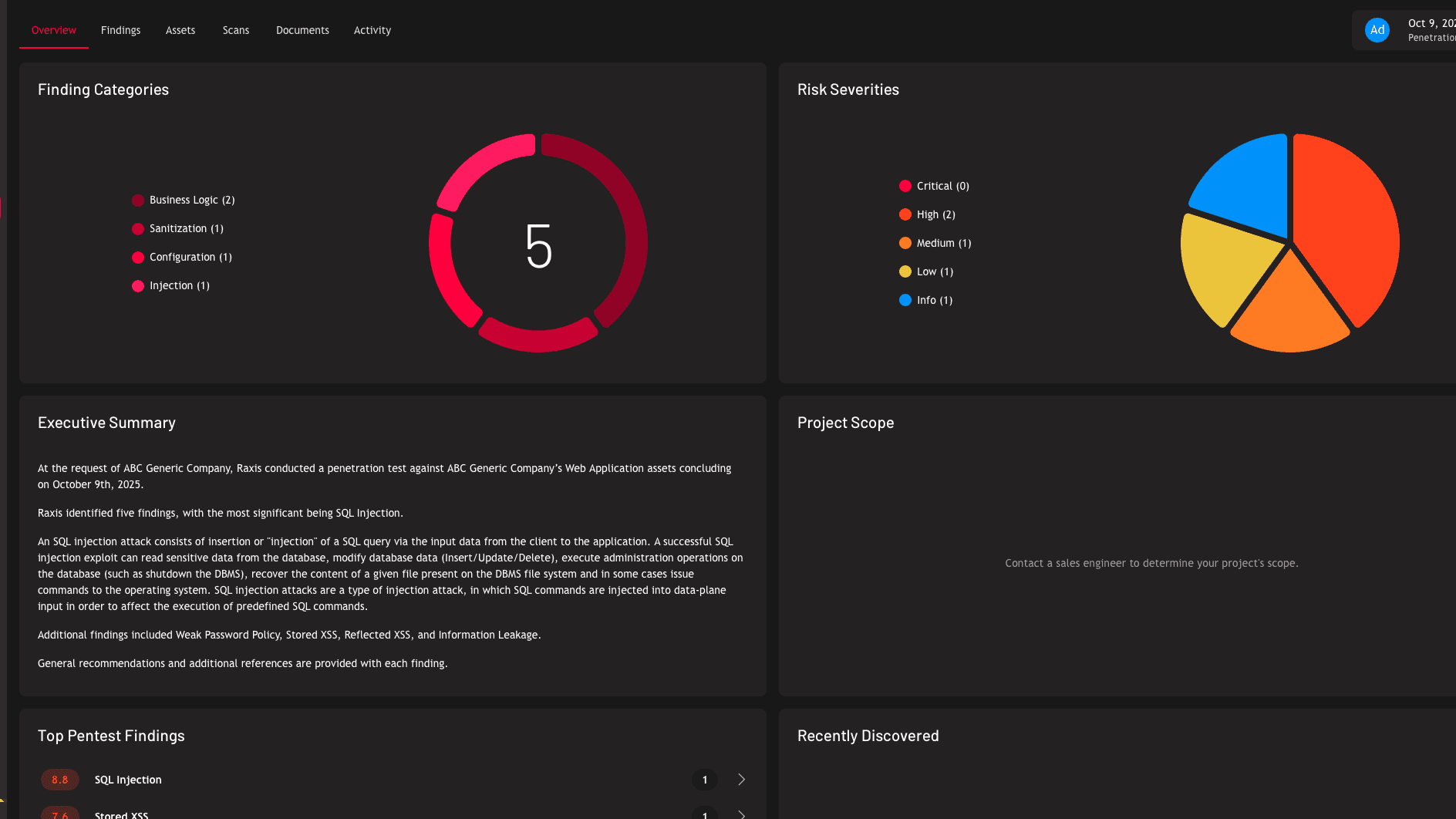FDA Medical Device Pentesting
Validate cybersecurity for connected medical devices under FDA premarket and postmarket guidance. We test for firmware vulnerabilities, insecure protocols, and authentication weaknesses that could impact patient safety.
HIPAA & HITECH Compliance Testing
Meet HIPAA Security Rule and HITECH Act requirements with penetration testing designed to identify gaps in access controls, encryption, and audit logging across your healthcare environment.
EHR & Healthcare Application Security
Protect electronic health records and clinical applications from unauthorized access and data breaches. We assess web portals, patient databases, and telemedicine platforms for exploitable vulnerabilities.
Safeguarding Humanity Through Technology
We ethically uncover vulnerabilities in healthcare systems, empowering you to strengthen security and protect patient data.
Why Choose Raxis for Healthcare Security?
Tailored for healthcare environments, our penetration testing aligns with HIPAA and HITECH standards while guiding you toward a stronger, more resilient cybersecurity posture.
Healthcare Security Expertise
Deep experience with medical devices, EHR systems, and clinical workflows—tailored assessments that address real-world healthcare risks.
Compliance-Aligned Testing
Every engagement maps to HIPAA, HITECH, and FDA cybersecurity requirements, so findings translate directly to compliance action.
Continuous Protection with PTaaS
Real-time results, unlimited retesting, and expert support through the Raxis One portal—ongoing security without annual test limitations.
Healthcare and Medical Systems Challenges
Complex Infrastructure
Legacy systems, cloud platforms, IoT medical devices, and EHRs create sprawling attack surfaces that demand specialized testing expertise.
Regulatory Pressure
HIPAA, HITECH, and FDA cybersecurity requirements mandate rigorous security validation—with serious consequences for non-compliance.
Zero Downtime Tolerance
Patient care can’t stop. Penetration testing must uncover vulnerabilities without disrupting critical clinical systems or treatment workflows.
Stretched Security Teams
Limited budgets and in-house expertise leave gaps in coverage, making it difficult to keep pace with evolving healthcare-targeted threats.
Raxis Hack Stories
The HIPAA Nightmare
Our stories are based on real events encountered by Raxis engineers; however, some details have been altered or omitted to protect our customers’ identities.
A large hospital with several locations around a bustling city, called Raxis in for a combined Raxis Strike internal penetration test and physical social engineering test (PSE). While the Raxis Strike team chained an attack with a cracked low-level user account to domain privilege access across the network, our PSE team made their way around the hospital, stopping at Operating Room areas per scope, but gaining access to spend time in the surrounding areas without comment. One member of the team donned a pair of generic scrubs bought at a nationally recognizable store, sat down at an unlocked nursing station computer and attempted to access patient data while another talked their way into the records office waiting room and cloned a badge that allowed her to come back during lunch and examine patient records housed in file cabinets while the staff was at lunch. Shockingly, when a staff member walked in and questioned her, she simply left, and the hospital employee never reported the incident.
As the test went on, our internal team informed the PSE team of an administrative web application that used default credentials. As the system was deep within the internal network and housed sensitive customer patient data, it could make for a solid test of network segmentation around accessible areas of the hospital.
Our PSE team was onsite at the hospital’s Cancer Center at the time and had just discovered an area open to the public. The area had comfortable room to speak privately, books and magazines about cancer topics… and a series of computers to allow patients, family, and friends to research the condition and find help and answers. Knowing that this area should only allow guest access and should be entirely segmented from the any internal network access, our PSE team attempted to access the administrative system. The site appeared on the screen, and the default credentials let them in. They took a photo of sensitive data on the screen (to be obfuscated and included in the report) and then reported this critical HIPAA finding to the customer so that they could begin the work to fix it immediately. By illustrating how cybercriminals could take advantage of unnoticed vulnerabilities to access sensitive patient information, Raxis showcased the critical importance of frequent penetration testing of all types within the healthcare industry.
